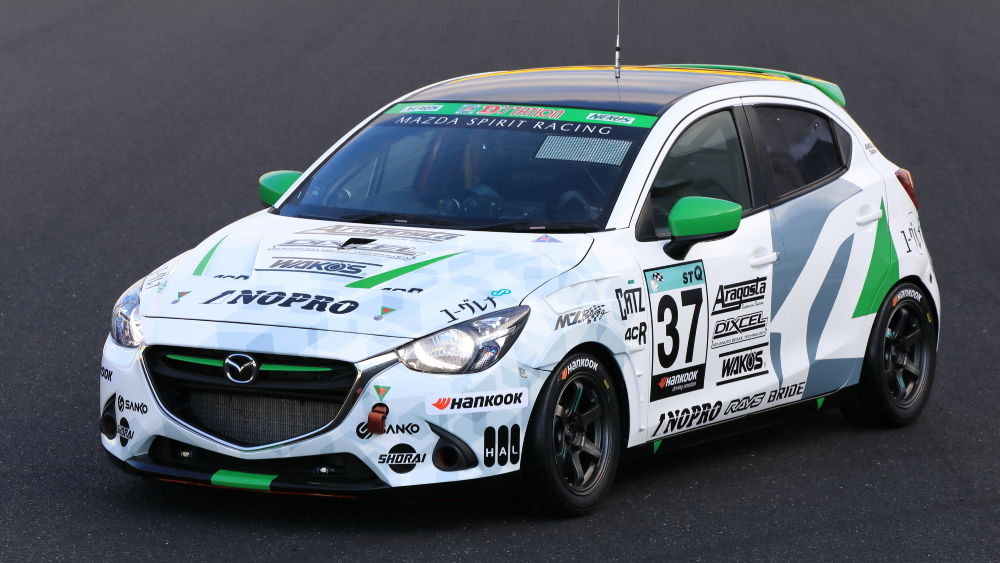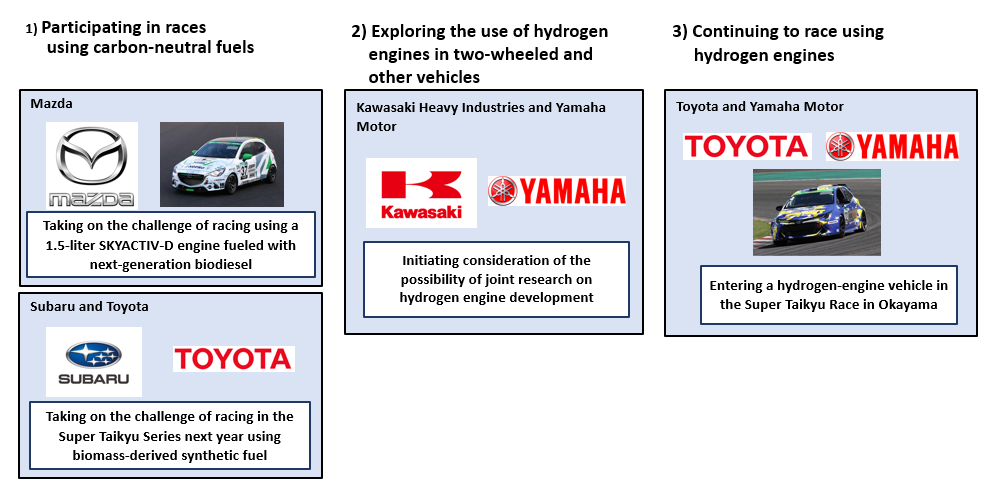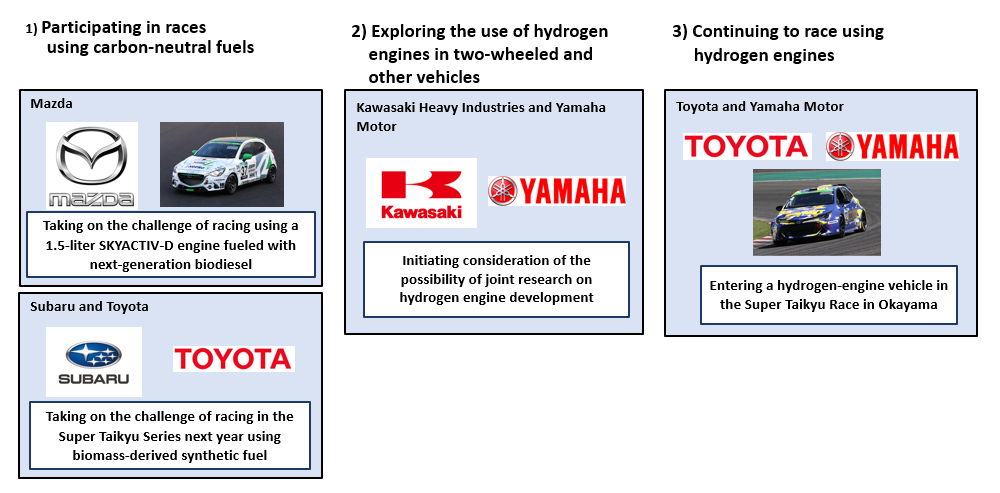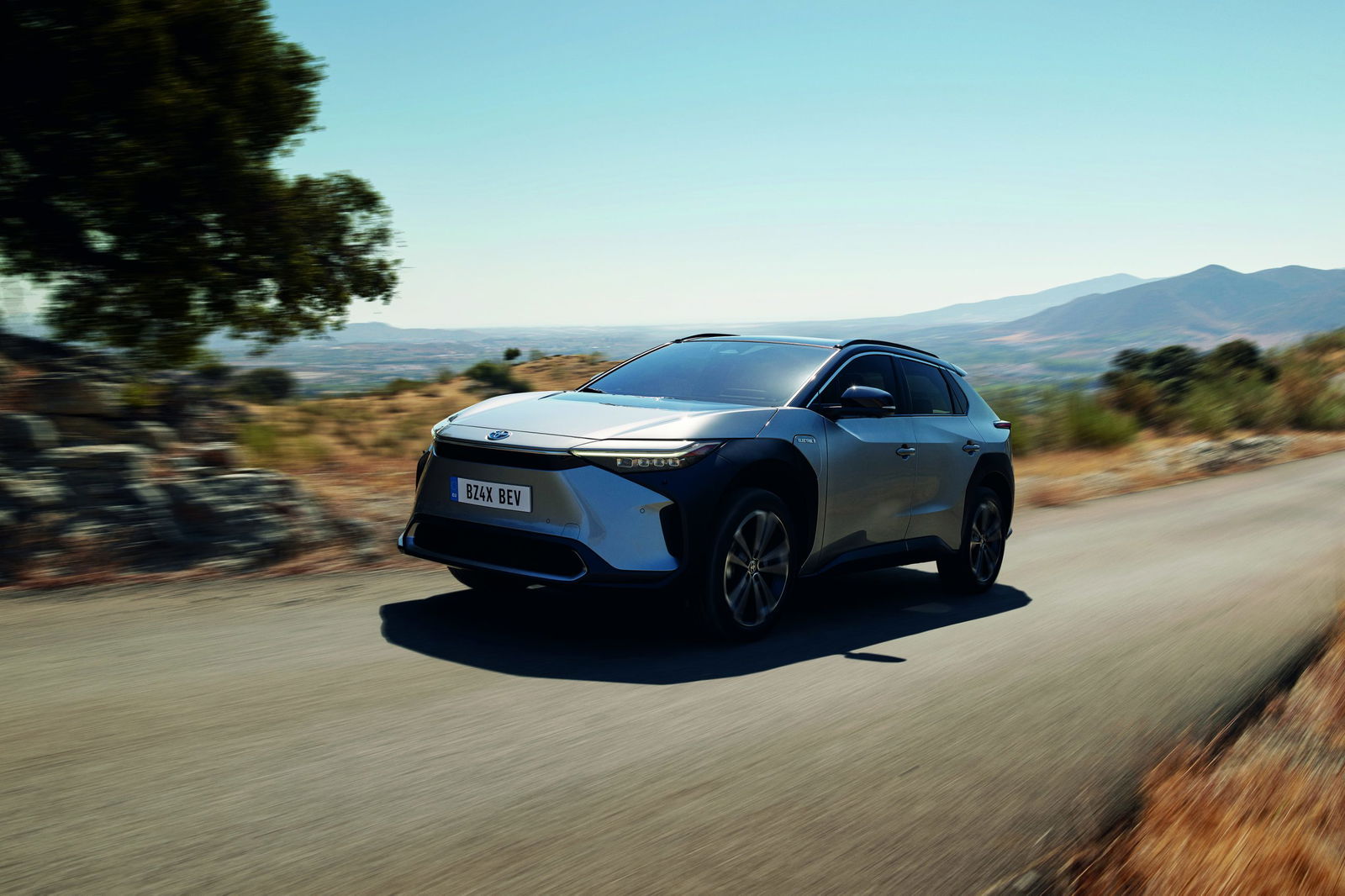Five Japanese Manufacturers Are Banding Together To Save Engines

Our fully electric future might not quite be the inevitability it’s often made out to be. Although billions are being invested in the creation of new electric vehicles and associated infrastructure, many major manufacturers are showing increasing interest in ways to keep internal combustion engines going alongside battery-powered stuff but in a much cleaner way.
In a recent joint announcement from Toyota, Mazda, Subaru, Yamaha and Kawasaki, the quintet of Japanese companies said they would be “using fuel toward achieving carbon neutrality - going beyond electrification initiatives to provide greater choice for using internal combustion engines”.

This will involve myriad activities, a large chunk of which involve racing. There’ll be an expansion of Toyota and Subaru’s existing partnership testing biomass-derived synthetic fuels in a motorsport setting, with the pair entering the Super Taikyu championship with a GR86 and a BRZ.
They’ll be in good alternative-fueled company - first off, already competing in this series is Toyota’s experimental Corolla, powered by a hydrogen-fuelled GR Yaris engine. Plus, Mazda is prepping its own entry, which will involve a 3 hatchback packing a 1.5-litre ‘SkyActiv-D’ engine running on 100 per cent biomass-derived diesel. According to Mazda, racing will be the best way to keep testing and developing biodiesel. The fuel itself is supplied by a Japanese company called Euglena Co, which specialises in ‘microalgae’ products.

The final piece of the puzzle concerns two-wheeled vehicles, with Kawasaki and Yamaha looking at jointly developing a hydrogen-fueled motorcycle engine. Solo, Yamaha has been working on hydrogen combustion technology for a while now, while Kawasaki has spent the last 11 years developing hybrid motorcycle tech. The latter firm revealed a prototype hybrid bike a few weeks ago, combining a parallel twin combustion engine with a starter-motor generator unit and two small batteries.
See also: Hybrid Kawasaki Motorcycles Will Soon Be A Thing
The pair will soon be joined by the other two big names of the Japanese bike industry, Honda and Suzuki. Together, they will “jointly explore the possibility of achieving carbon neutrality through the use of internal combustion engines in two-wheeled vehicles.”

The car companies involved in this endeavour will still be using electric cars as part of their quest for carbon neutrality, although all three are behind compared to their rivals. Mazda, which famously eschewed the industry’s downsizing trend, only started building its MX-30 EV last year. Toyota meanwhile, which has spent years espousing the virtues of hydrogen fuel cells, finally caved this year with the bZ4X (above), a badge-engineered version of the jointly developed Subaru Solterra BEV.








Comments